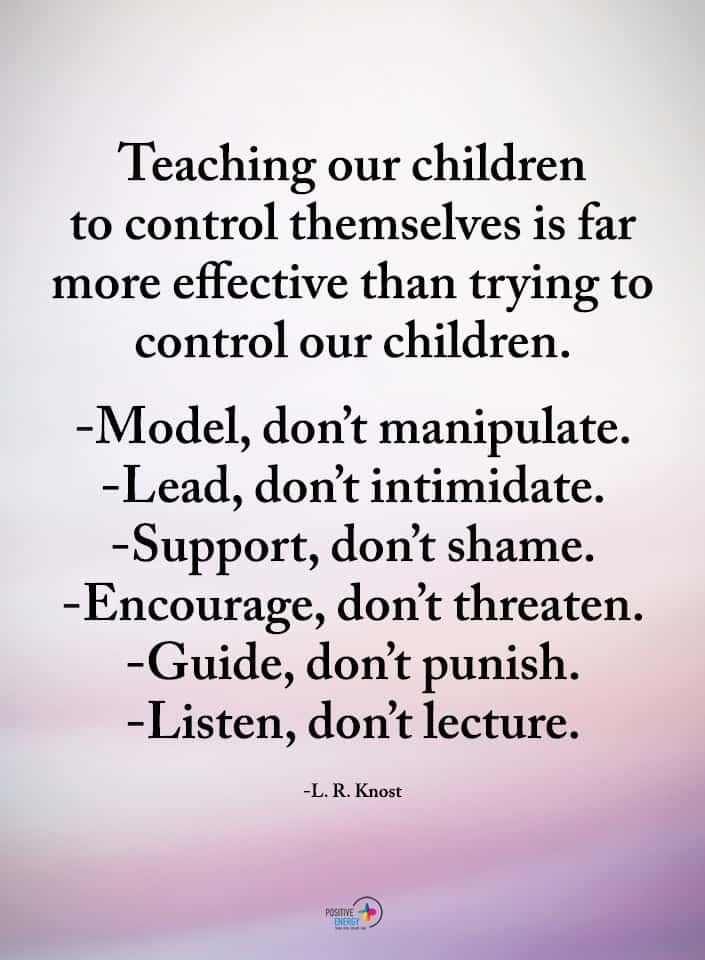Here are some ways parents’ actions may cause anxious children.
Raising children is an experience unlike any other. It’s filled with both rewards and challenges. One particular challenge is that parents might inadvertently cause childhood anxiety. It’s an event that happens more often than most parents realize. It’s also accidental, with parents not knowing how much their child picks up on parental behaviors.
These anxiety-inducing behaviors may usually come from parents – those who spend the most time with the child. However, unintentional negatvie behaviors of others can also contribute. Some of these could include other adults who spend much time with children. Grandparents. A parent’s friends or partner. Educators.
The intent of this article is not to judge. Nor is it to cast blame on parents or other adults who take care of children. Still, it’s important to understand the scope of childhood anxiety in the United States. We should also learn how certain parental behaviors can inadvertently trigger anxiety in children.
Childhood Anxiety: Not as Uncommon as You Might Think
Anxiety in children is more prevalent than many might assume. Recent data and studies provide a clearer picture of this growing concern. Check out these statistics:
Growing Rates of Childhood Anxiety and Depression
Anxiety and depression among children have seen a notable increase in recent years. A study published in JAMA Pediatrics, cited by the Center For Children and Families at Georgetown University, revealed that even before the pandemic, anxiety and depression were on the rise among children aged 3-17. By 2020, approximately 5.6 million kids, or 9.2% of this age group, had been diagnosed with anxiety problems, and about 2.4 million (4.0%) with depression. These figures represent an increase of 27% for anxiety and 24% for depression from 2016 to 2019.
Anxiety Statistics in the United States
In the United States, more than 7% of children between the ages of 3 and 17 have been diagnosed with anxiety, as reported by the Centers for Disease Control and Prevention (CDC). This number translates to roughly 4.4 million children and adolescents living with some form of anxiety. Notably, nearly 37% of a significant proportion also exhibit behavioral problems.
Anxiety and Depression Comorbidity
The interrelation between anxiety and depression in children is also significant. Data from Wake Forest University highlights that among children aged 3 to 17, 73.8% with depression also have anxiety, and 37.9% of those with anxiety also have behavior problems. Unfortunately, only 59.3% of children with anxiety in that age range have received treatment.
These statistics underscore the importance of recognizing childhood anxiety. It’s not an isolated or rare issue. Rather, it is a significant concern affecting millions of children and their families. The rising trends call for increased awareness, understanding, and support for children struggling with anxiety and related mental health challenges.
10 Parental Behaviors That May Lead to Childhood Anxiety
Here are ten behaviors that parents may engage in, unaware that it may lead to anxiety in their child. We’ll also share tips to reimagine each behavior, turning each from negative to positive.
While reading each of the following points regarding parental behavior, remember that the “fixes” are not instant. They take time and patience – and sometimes a professional counselor’s involvement.
1 – Setting Too High Expectations
Setting high expectations is a common parental approach, but it’s essential to recognize its impact on children. When expectations are excessively high or unrealistic, children can feel overwhelmed, leading to anxiety and stress. For instance, expecting a child to excel in every subject, be a top athlete, or attain a prestigious career can create unbearable pressure to succeed.
This pressure can manifest as fear of failure or low self-esteem. In more severe instances, it can be the cause of childhood anxiety disorders.
How to Fix It:
Balancing high expectations with support and understanding is key. Encouraging children to do their best, praising effort rather than just success, and recognizing each child’s unique strengths and interests can foster a healthier, more supportive environment.
2 – Hiding the Truth From Your Child
Parents often hide difficult truths from their children to protect them. But children are highly perceptive and can pick up on unspoken tensions. When children sense that something is wrong but aren’t given clear information, it can lead to confusion, fear, and anxiety.
For example, not discussing family financial issues or health problems with children in an age-appropriate manner can make them feel more anxious. Instead of hearing the facts from a parent or adult, they fill the gaps with their child-like imagination.
How to Fix It:
Open communication about life’s curveballs in a way suitable for the child’s age and maturity level can give them a sense of security and trust. Explain the facts. Make sure they understand that information can help them learn how to overcome challenges.
3 – Overprotection May Cause Childhood Anxiety
Overprotecting children can inadvertently hinder their development of coping skills and resilience. Of course, it’s only natural for parents to want to shield their children from harm. However, excessive protection can prevent them from experiencing and learning to overcome normal challenges. In some cases, parents might project their fears onto the child.
This overprotection can manifest in many forms. It might look like constantly intervening in children’s conflicts. It may also mean doing tasks for them that they can do themselves. It could also involve blocking them from engaging in age-appropriate risks. These practices can lead to childhood anxiety, as they may feel less capable of facing life’s challenges independently.
How to Fix It:
Step back and take a deep breath. Let kids be kids. Chat with your children about what they’ve felt shielded from. You don’t need to let your guard down all at once. Take baby steps. It’s okay to start small.
4 – Low Frustration Tolerance in Parents May Lead to Childhood Anxiety
Parents with low frustration tolerance can contribute to anxiety in their children. When parents react negatively to normal childhood behavior, such as making mistakes or acting out, it creates tension.
Children may become overly self-conscious and afraid to make mistakes. But deep down, they feel anxiety over disappointing their parents. Besides anxiety, this can lead to a range of issues, including perfectionism or low self-esteem.
How to Fix It:
Parents and other adults should master one or two coping mechanisms. Take a walk to blow off steam. Count to ten and pause before snapping back when something irritates you. Vent the negativity in a journal writing session. Managing frustrations and responding to children’s behavior with patience and understanding is imperative.

5 – Excessive Need to Control Everything
An overly controlling parenting style can restrict a child’s ability to make independent decisions and learn from their experiences. When parents micromanage their children’s lives, from their activities to their friendships, it can undermine the child’s confidence. Thus, it can often lead to increased anxiety.
How to Fix It:
Children need space to explore, make mistakes, and learn, which helps them develop a sense of autonomy and self-confidence. Encouraging independence while providing guidance and support helps nurture a child’s ability to handle life’s challenges.
6 – Inability to Love the ‘Authentic’ Child
Conditional love can lead to long-term emotional issues, including anxiety. But what is that? It’s when children feel they must meet specific criteria to be loved.
If children believe they are only loved for their achievements, behavior, or other things, it can create insecurity and unworthiness. Unconditional love, on the other hand, fosters a sense of acceptance and emotional security.
How to Fix It:
Appreciate the children for their actions or behavior, not just for who they are. When you feel proud, don’t be afraid to tell them. You are not spoiling them; you are instilling self-esteem. Just be sure you offer them authentic praise.
7 – Emotional Dysregulation
Parents who frequently exhibit emotional dysregulation, such as overreactions or emotional outbursts, can create a sense of instability. Children sense that. Worse, they can’t tell that the outburst is not about them.
They start to worry about triggering a negative response – which often causes anxiety.
How to Fix It:
Parents should seek ways to provide a calmer environment. They can achieve this by managing their stress, seeking help, and practicing calm and consistent responses.
8 – Distortion of Facts and Biases
When parents consistently interpret and react to situations based on their own biases or distorted perceptions, it can cause confusion and anxiety in kids. Children rely on their parents to help them make sense of the world.
But if the information they receive is skewed or inconsistent, it can lead to a flawed understanding of the world and themselves, causing insecurity and anxiety.
How to Fix It:
Parents must strive for objectivity and honesty in their interactions with their children. They should also become aware of their biases and get to the root of why they have those beliefs – that’s the start of undoing them altogether.
9 – Lack of Empathy Can Cause Childhood Anxiety
Empathy is crucial in nurturing a child’s emotional development. Parents who struggle with empathy might not fully recognize or respond appropriately to their child’s emotional needs. This lack of empathetic response can lead to feelings of isolation and anxiety in children. As a result, they may feel misunderstood and unsupported.
How to Fix It:
Many parents have empathy but don’t know how to model it for their children. Developing empathy requires more than listening. It means hearing their children. It also means validating their feelings with compassion and concern. It takes time and practice, but it’s possible to show greater empathy with time.
10 – Flawed Model of Love and Relationships
Exposing children to unhealthy relationship dynamics, especially where they are expected to fulfill the emotional needs of their parents, can lead to anxiety and difficulties in forming healthy relationships. This dynamic can set a precedent.
How to Fix It:
Parents must demonstrate and teach healthy relationship dynamics. They should seek relationships based on mutual respect, communication, and understanding. Parents should encourage their children to develop their identities and pursue personal interests. Those will help independence and self-confidence outside of the parent-child relationship.

Final Thoughts on the Ten Parental Behaviors Accidentally Leading to Childhood Anxiety
Recognizing and addressing parental behavior can be a significant step in fostering a more supportive and anxiety-free environment for children. Indentifying these parental behaviors takes much honesty and self-reflection. It’s also worth reiterating that the “fixes” mentioned are not easy and often require a counselor. Still, the childhood anxiety statistics are alarming. It’s time we, as a society, look inside ourselves and ask what more we can do to help our kids.
The post 10 Parental Behaviors That Trigger Childhood Anxiety appeared first on Power of Positivity: Positive Thinking & Attitude.





